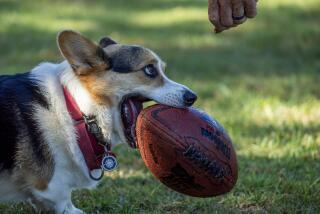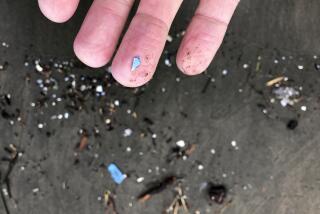How to make a fat mouse
- Share via
Despite all the attempts to legislate America’s way out of obesity with food regulations, a new study out of UC Irvine suggests that there could be more to fat than sloth and supersized sodas.
Pregnant mice exposed to a chemical commonly used in PVC -- best known as the material used for piping but also a component in home furnishings, children’s toys, packaging and lots of other everyday items -- gave birth to offspring with a tendency to obesity. And their offspring’s offspring, which were never exposed to the chemical. And likewise for their offspring’s offspring’s -- well, you get it.
The new study, led by Bruce Blumberg, UC Irvine professor of pharmaceutical sciences and developmental and cell biology, is published in Environmental Health Perspectives, a publication of the National Institute for Environmental Health Sciences.
The mice were given the chemical in their drinking water, at levels similar to what’s found in household tap water. In previous studies published by the same lead author, this chemical, tributyltin, was found to promote obesity by modifying stem cells as they developed so that they were predisposed to become fat cells.
That doesn’t mean it’s time to replumb the house. Mice are not people and their bodies work in considerably different ways. Nor does this excuse our collective penchant for 32-ounce gulps of carbonated sugar water.
But the federal government certainly should be paying close attention to the study and planning expansive new funding for research that might confirm and expand on these findings. Or how about if it required that of the PVC industry?
Too often we have surrounded ourselves with chemicals only to discover, when they were so prevalent that it was impossible to get them out of the environment, that they were bad for us. Fire retardants, anyone? This might not fall into the same category, but consumers have a right to answers, as soon as science can provide them.
ALSO:
Putting a price tag on safe food
More to Read
A cure for the common opinion
Get thought-provoking perspectives with our weekly newsletter.
You may occasionally receive promotional content from the Los Angeles Times.






